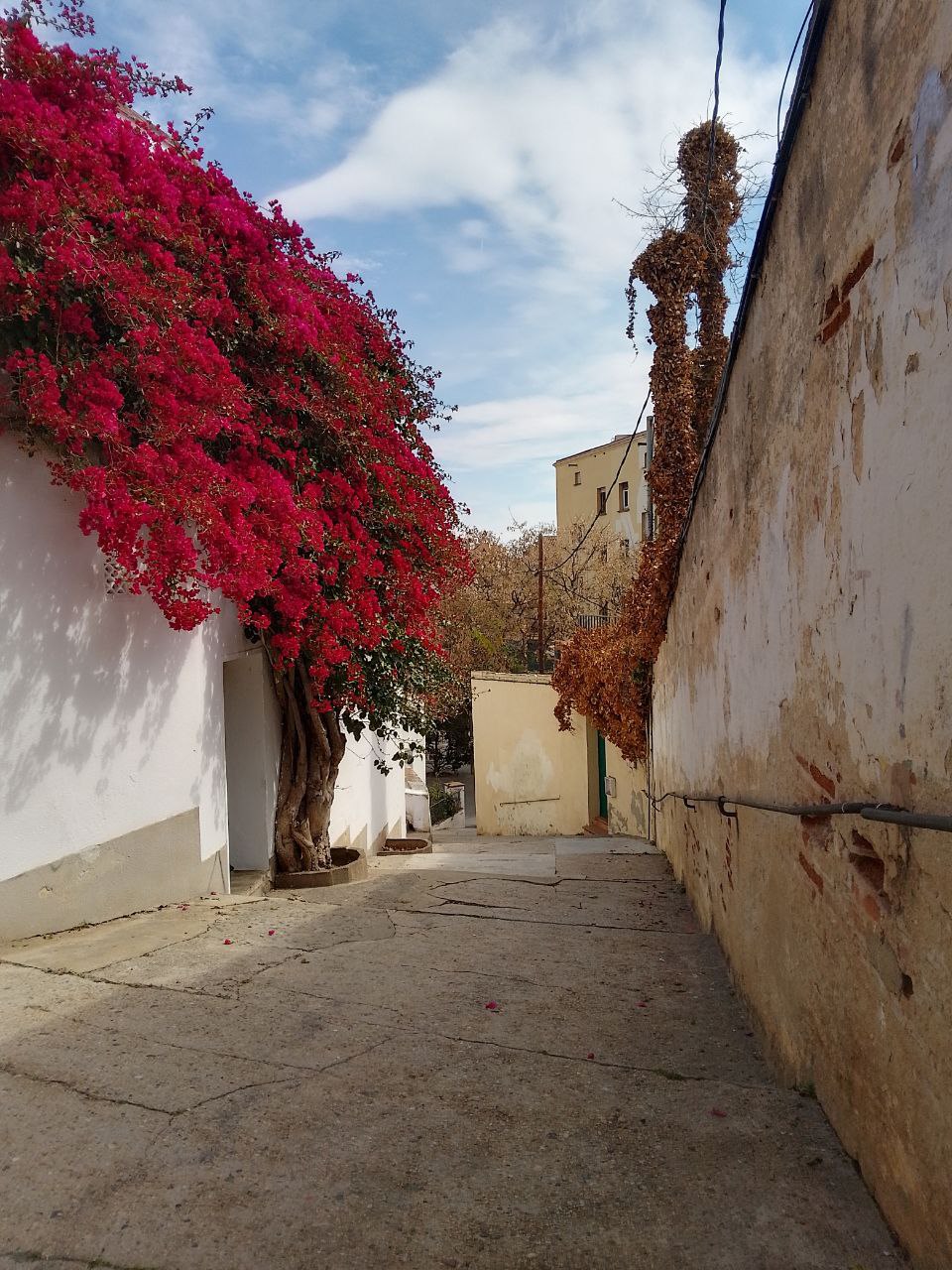Daily Routines
Taking life as it comes day by day
Cats and dogs love routine. They must eat at every day roughly at the same hour, take a walk or play at roughly the same hours, sleep at the same hour, etc. They find it strange if people or places around them change too much. Cats in particular are very fussy about any object that is not in its usual place inside the house. (For those interested, I wrote a brief book about the history of our interactions with pets).
Humans love routine too, even though sometimes we think we don’t. The proof is how quickly we adapt to a new place and create a new daily routine, almost instantly.
I’ve been in Catalonia for less than two weeks and, since I am only working remotely these days, I already have my daily routine of walks and cafes, with only a few variations. In the mornings I usually go to the fancy cafe up the hill, which has the best croissants but is a bit expensive for anything more substantial; in the evenings, I go to the “bar del chino” near the beach which has the cheapest bocadillos and the coldest beer.
Today, however, I inverted things and I am in the evening in the cafe up the hill. (I am a bit more flexible than cats and dogs, plus, I will — alas! — leave Barcelona soon and my routine will change, again.) The waiter here is a sympathetic young man with black-painted fingernails. I don’t think he’s gender-fluid or anything, it’s just that it’s that kind of fancy, alternative, modern place. If it was a girl, she would have lots of tattoos, blue hair and a nose ring.
He seems to be an exception. Young people here in Spain, or at least in this lazy suburban place, seem to dress more conventionally than in other places. In Germany, at least in the big cities, most young women you come across have hair painted in unnatural colours, several nose rings, weird clothes, tattoos. Here tattoos are — unfortunately — common too, but young people in general look a little bit less conspicuous.
Drinking a cappuccino instead of a beer, I am more alert and attentive to my surroundings. I overhear the conversations around me. A woman is talking to a man about her recent experiences as a failed migrant in Australia.
“Because in Australia, they don’t like the Spanish so much. They think Spanish people are… Well, they discriminate against us,” she says.
“Ah. Like us with the Argentines,” replies the man.
“Exactly!”
(I am an Argentine by birth, but I have never felt any discrimination here. To be fair, neither my accent nor my looks give me away.)
On another table, someone is saying that you have to choose well your profession. “If you are, for instance, a translator, you won’t find many jobs.”
(I am, among other things, a translator. And he’s right, there’s no much work lately, and what there is, is not well paid. AI is taking it all.)
The only consolation is that it is taking everybody else’s jobs too. In Germany, I’ve noticed that many shops and supermarkets started transitioning to automatic cashiers. Some places do not even accept cash anymore, in a transition to digital money. Yet people still cheer and hype about AI, even as it steals our jobs and makes us redundant. The newspaper I’m reading at the cafe — a real news-paper, those still exist here — has several articles about AI. It will probably make many journalists redundant too. Yet, the only complaint they can find is that it “consumes a lot of energy and therefore contributes to climate change”. (Modern life is all about stressing yourself with imaginary problems, while ignoring real ones.)
Me? Well, you know, I’m basically a Luddite. I still listen to vinyl records and read paper books and old style newspapers (if I can get them for free, as I don’t like to pay for propaganda, thank you).
Here in this suburban town in Catalonia, time seems to have stood still — at least, a little bit. There are no self-checkout cashiers around, and all places accept cash.
I wish I could stay longer, but, like a stray dog without a home, my routine has to adapt to the circumstances. Here today, gone tomorrow.
In the end, isn’t this how we all live?





Tom, reading your posts is like sitting down with a great cup of coffee in a tiny unknown cafe. Thank you.
One of the many things that struck me in this post was the comment you made about AI taking all the work away from translators. I have been both amazed and disturbed by this phenomenon.
On the one hand, it is terribly convenient to be able to throw text into Google Translate and get at least a reasonable translation back very quickly. On the other hand, I wonder about the nuances and intricacies that are lost in a such a computerized process.
A particular translation of The Yoga Sutra of Patanjali was recently recommended by one of my favourite bloggers. I took a quick look at it and compared it to another translation I already own. Both versions were from very trustworthy, knowledgeable sources, and each was valuable in its own right in terms of distilling Patanjali’s ancient wisdom from the original Sanskrit. And yet there were obvious differences between the two, as well.
It really made me think about what we are losing if we become overly dependent on AI-generated information. Certainly none of it will ever make me feel like I’m sitting down with a great cuppa in a quite little cafe.
Thanks. Well, I am ambiguous about AI. On one hand, it can be helpful, for instance for reading websites in other languages that you don’t know, and even as a tool to speed up things for translators and for teachers. In this sense, even I make use of it as a tool. On the other hand, I don’t trust it at all for more literary translations — and not just literature, but any kind of good-quality prose. And I especially distrust AI writing, which is now doing for writing in general what it did for translation. I am sure there are now many marketing and technical blogs which are completely AI-written. At least, they read that way. And I can’t imagine the nightmare it must be for school teachers to spot AI-written essays. No, I am not a fan of AI, and, on balance, I think it is going to be much more negative than positive. And it’s a misnomer. It’s not “Intelligence”, unless you understand it in the same way that the CIA understands it.